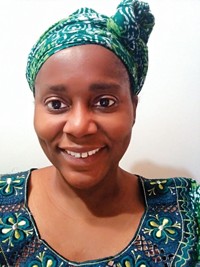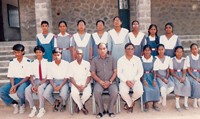Advertisement
Grab your lab coat. Let's get started
Welcome!
Welcome!
Create an account below to get 6 C&EN articles per month, receive newsletters and more - all free.
It seems this is your first time logging in online. Please enter the following information to continue.
As an ACS member you automatically get access to this site. All we need is few more details to create your reading experience.
Not you? Sign in with a different account.
Not you? Sign in with a different account.
ERROR 1
ERROR 1
ERROR 2
ERROR 2
ERROR 2
ERROR 2
ERROR 2
Password and Confirm password must match.
If you have an ACS member number, please enter it here so we can link this account to your membership. (optional)
ERROR 2
ACS values your privacy. By submitting your information, you are gaining access to C&EN and subscribing to our weekly newsletter. We use the information you provide to make your reading experience better, and we will never sell your data to third party members.
Careers
Career Ladder
Career Ladder: Kelly Chibale
Education helped this organic chemist overcome poverty. He now leads a drug discovery research center in Cape Town
by Melissa Gilden
April 4, 2021
| A version of this story appeared in
Volume 99, Issue 12

1964
Humble beginnings
Kelly Chibale was born in Zambia in a remote village called Muwele. He grew up without electricity or running water, and he had no exposure to science early on. In seventh grade, he failed his exams and had to repeat that year of schooling. “That failure was a turning point,” he says. He decided that he did not want to continue to live in poverty. Education was a way of getting out of poverty, he says. “Our role models in those days were people who went to school.” His first exposure to science, specifically chemistry, was in high school. Chibale says his dynamic chemistry teacher and learning lab techniques such as titration sparked his interest in chemistry.
1983
Synthesizing his degree
Chibale went to the University of Zambia to pursue a bachelor’s degree in chemistry. “It was when I was an undergraduate that I really began to fall in love with chemistry,” he says, and he took a particular liking to organic chemistry. After college, he worked at a local explosives company as a development chemist, synthesizing explosive chemicals and assembling detonators. At the same time, he was applying for positions and scholarships at universities outside Zambia. After countless applications, he secured a scholarship to study for a PhD at the University of Cambridge.
1989
Catching up quickly

Even though Chibale had obtained a bachelor of science in chemistry and had industry work experience as a chemist, he found himself ill prepared to study at Cambridge. The lack of science exposure growing up and the small chemistry program at the University of Zambia put him at a disadvantage, he says. There was a lot of adjustment to be made, too. Traveling to Cambridge was his first time out of Africa, and he found things like the weather, the food, and even the science in Cambridge to be strange. However, “a disadvantage can be an advantage,” he says. And knowing he was far behind his classmates gave him an extra push to be successful. After obtaining his PhD from Cambridge, he completed postdocs in synthetic organic chemistry at the University of Liverpool and Scripps Research in California. He then found a position at the University of Cape Town.
Today
Building infrastructure and molecular tools

At Cape Town, Chibale wears two hats. He has an academic appointment as an organic chemist, and he is the founder of the Drug Discovery and Development Centre, known as H3D. The institute is one of a kind as a major multidisciplinary research center within a university and has even earned the attention of funders like the Bill and Melinda Gates Foundation. Chibale says H3D is building infrastructure for research and bringing scientific talent to South Africa so that scientists can solve problems in drug development locally. In particular, H3D focuses on malaria, tuberculosis, and antimicrobial resistance. Chibale hopes his research will expand to develop preclinical tools to prioritize small molecules according to their predicted pharmacological profile in the African population; this work will aim to improve outcomes from clinical trials that were mostly conducted with Caucasian participants. As important as the research is, creating jobs and building infrastructure in Africa are just as critical, Chibale says. And that infrastructure relates to the COVID-19 pandemic. “We’ve got to build local,” he says, “because that’s the only way that a country is going to respond to a pandemic.”





Join the conversation
Contact the reporter
Submit a Letter to the Editor for publication
Engage with us on Twitter